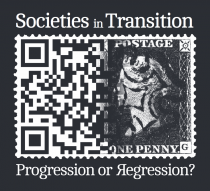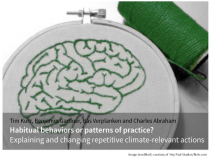- About
- Team
- Projects
- Children and the Environment
- ELiCiT (Exploring lifestyle changes in transition)
- Foundations for Sustainable Living
- HABITs
- Mapping Rebound Effects
- PASSAGE (Prosperity and Sustainability in the Green Economy)
- Policy Dialogue
- Price Responsiveness of Demand in Energy
- Resilience and Sustainable Lifestyles
- Sustainability Transitions in Food Systems
- Sustainable Living in Remote Rural Scotland
- Publications
- News
- Events
Habits, routines and temporalities of consumption
Where:
13BB04, University of Surrey
When:
Sep 26 2012 - 13:00
Seminar, 26 September 2012
Prof Dale Southerton
Sustainable Practices Research Group, University of Manchester
The terms habit and routine have come to be used with increasing frequency in debates about ‘behaviour’ change and sustainable consumption. In this seminar it is argued that conceptual usages of the terms habit and routine areoften imprecise and used generically to capture many different aspects of human action. A three-fold conceptual framework comprising of ‘dispositions’, ‘procedures’ and ‘sequences’ is proposed as a first step in dealing with this problem. Secondly, it is suggested that generic uses of the terms habit and routine imply multiple forms of temporality. Again, as a conceptual sorting exercising, three categories of temporality pertinent to understanding habits and routines are examined: time as a resource; the temporal demands of practices; and, temporal rhythms. Finally, the relationships between the conceptual variants of habits and routines and temporalities are examined through reference to empirical research. In conclusion, it is argued that to advance understandings of ‘habit and routine’ much greater conceptual clarity is required, and focusing on the temporalities of practices presents just one avenue for doing so. Such conceptual and empirical exercises are necessary if apparently intractable ‘barriers’ to shifting away from less sustainable patterns of consumption are to be achieved.













